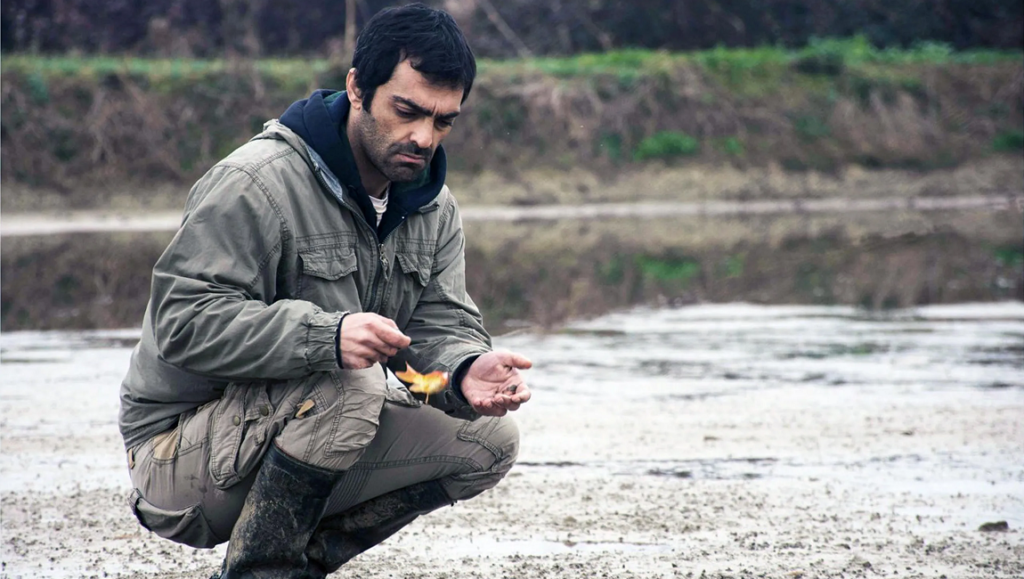A Man of Integrity is a probing, challenging film, a poetic latticework of sadness and anger.
Leave it to the fates of film distribution that Iranian director Mohammad Rasoulof’s latest release is actually his 2017 Prix Un Certain Regard winner, A Man of Integrity. This makes for a wallop of a one-two punch paired with the release of his sprawling anthology film There Is No Evil last year, resulting in a concentrated and well-deserved burst of momentum for a director whose reputation has often been overshadowed by that of close personal friend Jafar Panahi. The latter had even edited Rasoulof’s spectacular allegory The White Meadows, a film of such beauty and imagination that I feel compelled to shout into the ether for any improvement over its disheartening standard-def transfer whenever it crosses my mind. Rasoulof may have long eschewed White Meadows-style Swiftian allegory in favor of raw social realism, but he’s retained his eye for fierce visual poetics nevertheless, a feature far more evident in A Man of Integrity than in the didactic staccato of There Is No Evil. This poetry is also far clearer in the film’s original title Lerd (لرد), which translates to lees/dregs, like the sediment left over from wine, or as the film suggests, perhaps the husk of a human being once they have been squeezed for all their worth.
This metaphor spiderwebs its way through the film, as we watch Reza (Reza Akhlaghirad), a stoic goldfish farmer and the titular man of integrity, have his values tested by the encroachments of the corrupt corporate and municipal bureaucracies that threaten his livelihood. We see it when Reza makes watermelon wine, a close-up on his fingers juicing the fermented pulp looks like he’s pumping a heart dry, and we see it when he’s sifting dead goldfish from the water, his body submerged beside them, begging the question of whether he is next to go. Meanwhile, the English title serves a similar function to Asghar Farhadi’s A Hero, an ostensible proclamation of fact put forward as the film’s central question. What is the worth of Reza’s integrity when it comes at the cost of his family? At what point does the dignified stance against working within the corrupt system equate to an egotistical obstinacy? And then, if one acquiesces even for a minute, how steep and rapid is that downward slope? At one point, Rasoulof seems to lay out the maxim that in a contorted society there is no middle ground to hold between oppressor and oppressed, and while the film’s final gesture may reiterate this point, these questions linger through film, afforded no quarter or easy answer to subside them.
Rasoulof once again embraces poetics to emphasize these tensions and so subsumes Reza’s purgatory in a sea of blues and grays of a permanently overcast world observed through murky windshields with shadows of menacing branches creeping across the characters’ faces as they drive. The ultimate expression of this, however, is a hot springs cave in which Reza finds momentary solace, and yet shots of him floating in the bluish hues of its foggy water seem to suggest a precipice, as if here in this period of rest is the closest he can come to sinking. The infrequent moments when the gloom breaks are often punctuated by the presence of his wife Hadis (Soudabeh Beizaee), whose pragmatism and pull toward action serves as a counterweight to Reza’s withdrawn passivity. Hadis’ involvement at the school further entwines her into the community that her husband attempts to cordon himself off from, and it’s her involvement that ultimately sets off the sequence of events that, depending on the vantage, function as the family’s salvation or perhaps their doom. These ostensibly simple foundations — a corporation muscling a farmer off his land while entwined with organized crime and corrupt officials — are molded into something much more profound in Rasolouf’s hands; a latticework of sadness and anger, swaying in the breeze with wistful futility. What is compliance, Rasoulof asks? What is rebellion? What is integrity? And how much of yourself can you lose before you’re reduced only to detritus.


Comments are closed.